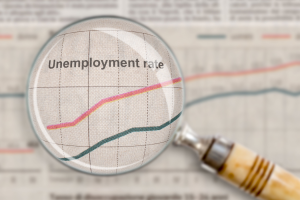
Earnings season often comes with big moves on the market as beats and misses send stocks on a rollercoaster ride.
It’s time examine the companies in your portfolio and question whether or not management is delivering on its initiatives. It can also be a good moment to spot bargain stocks that suffered a large fall on bad news.
But most importantly, looking beyond results of each sector and the wider market, earnings season can highlight some developing trends that could drive the future market.
This year we have been eyeing some key sectors. Companies that gobble up consumers’ discretionary spending were of particular interest amid signs of the Fed’s tightening policies surrounding the economy. We did see some cracks starting to form during the second quarter. This could set the tone for some turbulence ahead for companies that rely upon consumers’ willingness to spend.
Earnings season was also punctuated by several ESG controversies. Responsible and activist investors have been keeping a close eye on earnings calls for these firms. But the behavior surrounding ESG commitments should be of interest to all investors, since it offers governance insight. Companies that made strategic commitments are now backing away which in turn makes investors wary. Nimbleness and adaptability are encouraging, but these sudden shifts also raise questions about the validity of those commitments.
Investors were Hesitant to Embrace Earnings Beats

Perhaps the most important takeaway from the Q2 earnings season was the lack of excitement among investors. Although more than three quarters of the S&P 500 managed to beat earnings expectations this quarter, few saw their share price rise considerably. Typically, earnings beats come with an average 1.6% rise. This time around, shares that delivered beyond expectations were up an average of only 0.5%.
Two key reasons account for this trend. The first is that shares are already expensive. The stock market’s rally has made it more difficult to justify current valuations. So earnings beats, while positive, didn’t do much to move the valuations upward. Instead, the good news more or less allowed the fundamentals to catch up.
Secondly, the bar was very low. Conditions have proven difficult among the pandemic, the Ukraine war, and then the post-pandemic return to normalcy. Expectations were relatively low, so earnings beats weren’t quite as celebrated.
Consumer Resilience is Starting to Fade

This earnings season we were all expecting cash-strapped consumers to tighten their purse-strings given the challenging environment. But there have been some pockets of optimism that are finally starting to loosen some of their insulation. Consumers have been willing to spend more on experiences over items, which means a range of sectors like travel, hospitality, and restaurants have held up relatively well.
However, this earnings season we saw that some of that optimism is starting to fade, suggesting the people may have had their fill of post-pandemic celebrations. Trends among the biggest restaurant chains like Starbucks (NASDAQ:SBUX) and Chipotle (NYSE:CMG) showed revenues are starting to dwindle.
On the bright side, cheap labor and relatively low food inflation hav meant these companies were still able to deliver on the bottom line. But the deceleration in revenue is a trend that’s expected to continue through the second half of the year, which could spell trouble for these companies.
ESG Issues Took a Backseat

The market’s sin stocks were also under the microscope this earnings season as responsible investors looked to see whether previous commitments were being abandoned. In many cases, they were. This is particularly true among the oil and gas majors across the pond, who have been in the spotlight after abandoning their ambitious climate pledges earlier this year.
BP boss Bernard Looney raised some eyebrows when he underscored his commitment to only investing in green energy projects that meet the company’s returns threshold. For some, Looney’s somewhat negative sentiment around green energy spending marks a key turning point in the energy sector’s commitment to stopping climate change.
AB Inbev’s results told a similar story. The beer maker suffered declines in the U.S. market after being boycotted for trying to drive social change. The company’s earnings call revealed that the business was going to try to stay in its lane from now on, which is likely to disappoint some ESG investors.
On the date of publication, Marie Brodbeck did not hold (either directly or indirectly) any positions in the securities mentioned in this article. The opinions expressed in this article are those of the writer, subject to the InvestorPlace.com Publishing Guidelines.





